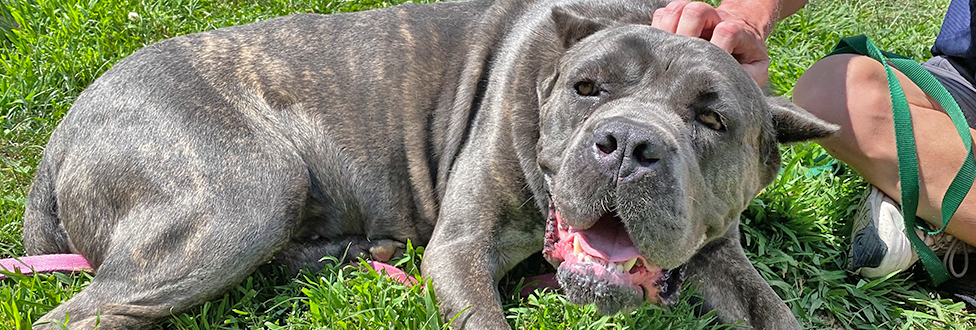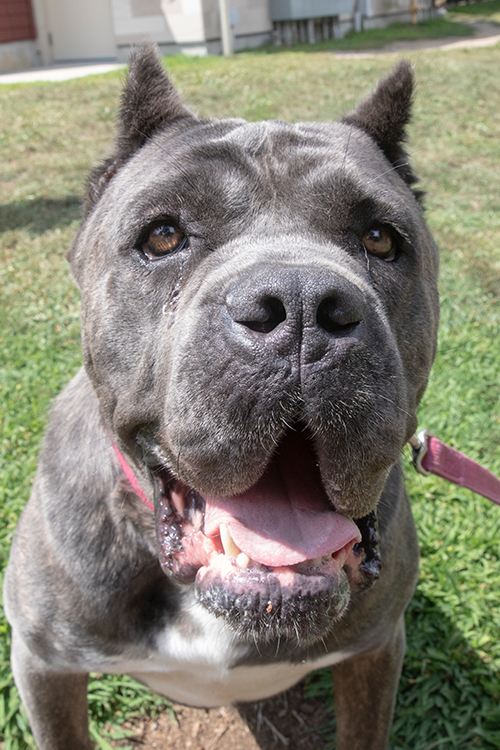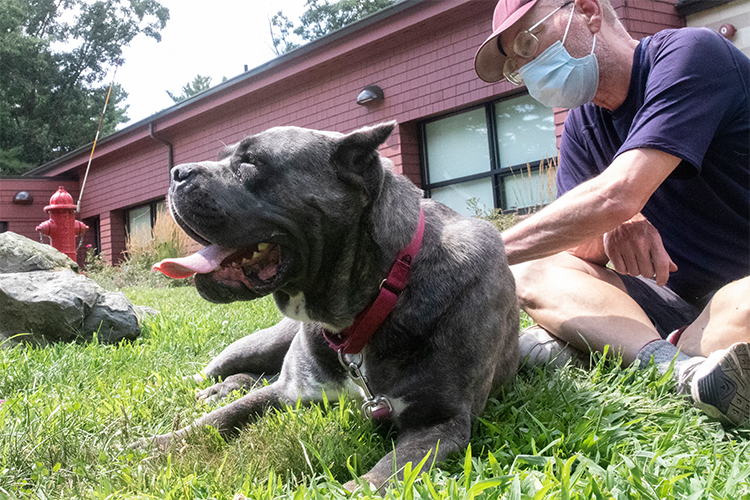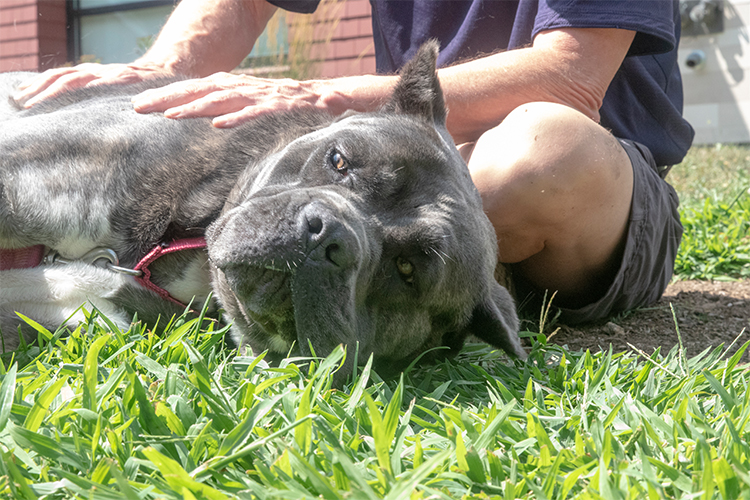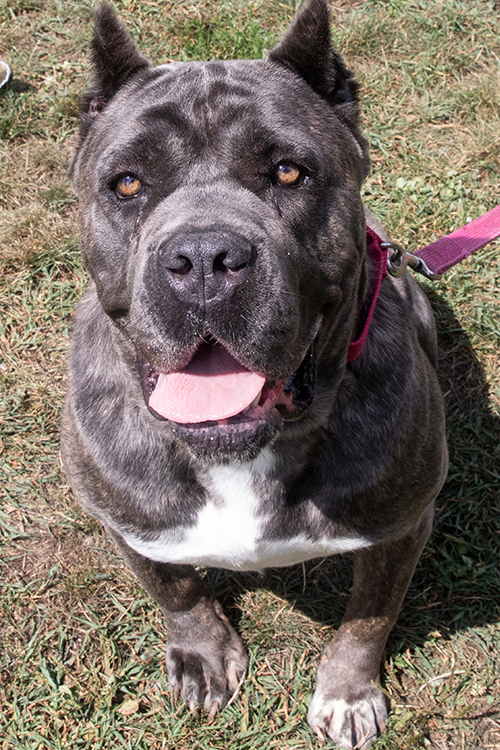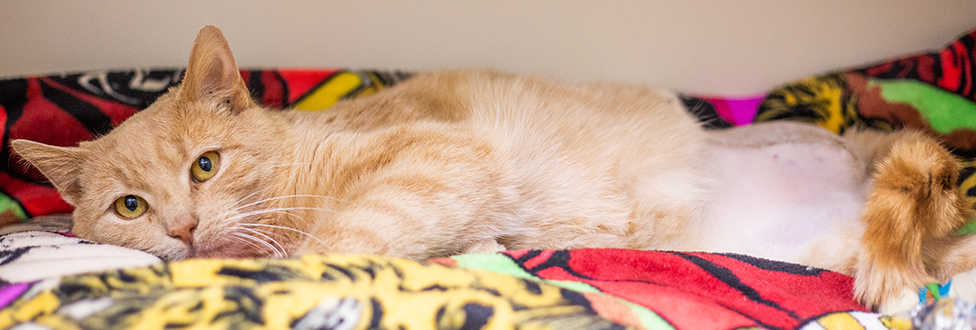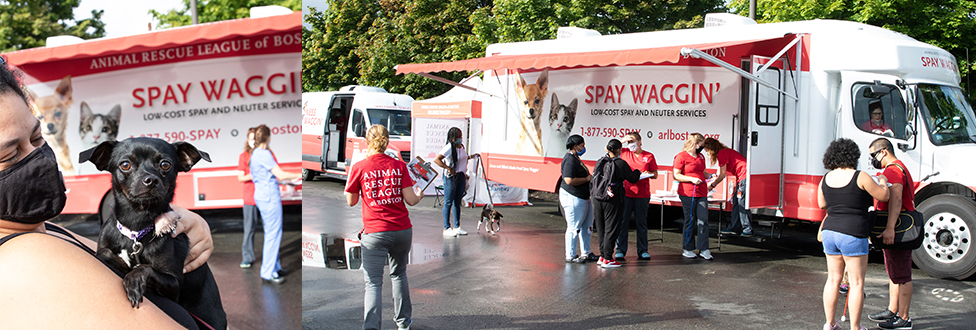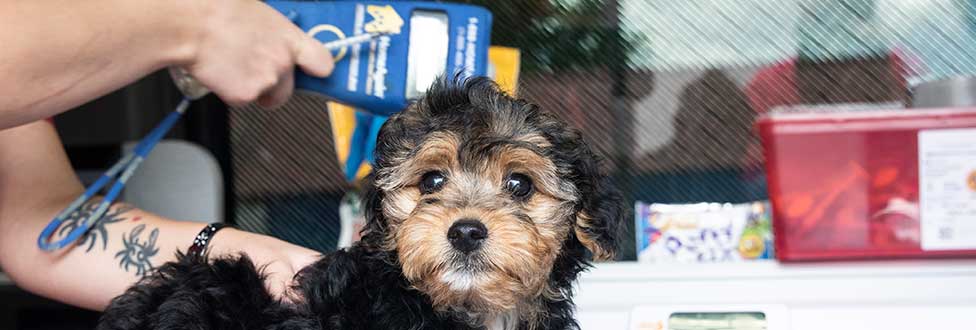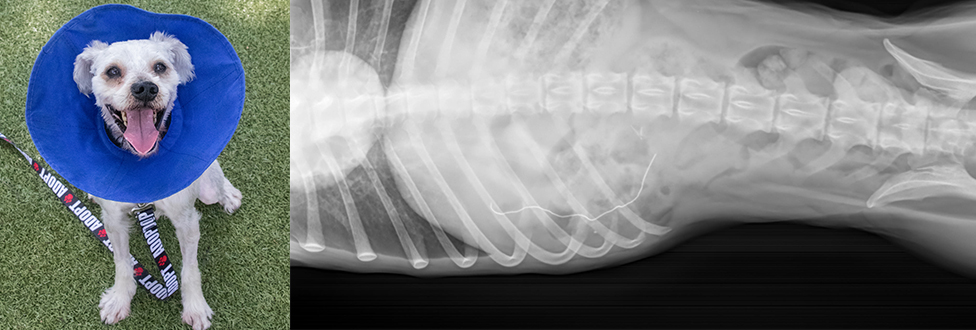Cane Corso with ARL for One-Year Ready to Find Her Forever Home
Alexandria seized from Middleboro Breeding Facility in September 2019
The Animal Rescue League of Boston (ARL) is excited to announce that the last animal remaining in ARL’s care from a September 2019 law enforcement case is finally ready to find her forever home.
Alexandria, a three-year-old Cane Corso, was one of 24 animals (20 dogs) seized from a Middleboro, MA, breeding facility in September 2019, who were found living in poorly ventilated, unsanitary, and dangerous conditions.
Click here for local media coverage of Alexandria’s story!
The owner of the property was charged with five felony counts of animal cruelty, as well as 23 misdemeanor charges of neglect. The case remains in the Plymouth County judicial system.
All of the dogs from this ongoing law enforcement case have been adopted and enjoying their new lives, however Alexandria has taken longer to become ready to find her new home.
The majority of the animals were traumatized by their former living situation, compounded by limited outdoor access and socialization. Sadly for Alexandria, her level of traumatization was extreme, and caused her to become quite fearful of everything around her.
Alexandria, like her kennel mates, spent the majority of their time in cages, so in her reality, everything beyond the kennel door was unfamiliar and scary.
Her situation required months of encouragement, support, and help from ARL staff, and over the past year Alexandria has made tremendous strides.
While she would not come out of her kennel for her first months at ARL, Alexandria now enjoys being outdoors and loves playing with other dogs and is even more eager to approach a new person.
Ready to Go Home
ARL is thrilled that Alexandria is ready to find her new home, however she will still require multiple meets with her potential adopters to ensure she is comfortable.
ARL’s behavioral staff will also be providing post-adopt behavior/training support to make sure she settles into her new surroundings.
Please note that all animal adoptions at ARL are currently by appointment only and for more information on the adoption process click here.
You Make These Outcomes Possible
While it is difficult to predict the on-going impacts of this global crisis, one thing remains constant – animals in our communities are still in need.
And with a great need for these ongoing and expanding community services, Champions Circle members are there to answer the call for help.
Thanks to you, Alexandria was able to not only be rescued from her situation, but received the extensive support she needed in order to have a second chance.
Champions Circle members provide steady support that sustains life-saving measures and second chances for homeless and at-risk animals all year long.
During unprecedented times like these when fundraising events have been cancelled or modified, monthly gifts are crucial to providing life-saving care and assistance to animals when they need it most.
By becoming a Champions Circle member today, you are ensuring that animals in need will the care they deserve, even during crisis.
Why does monthly giving matter?
- Spreading out your donation in increments throughout the year makes your giving budget work harder and creates an even bigger impact for animals.
- Monthly giving is a convenient, affordable, and efficient way to make a difference in the lives of animals in our community.
- 60% of ARL’s funding comes in during the last quarter of the year- and most of it during the last 2 weeks in December – yet animals need help every day. Monthly support from Champions Circle donors provides animals with care and assistance when they need it most.
Use this secure link to join now, or call Derek at (617) 426-9170 x162.
Join by September 30th, and receive a special 2021 wall calendar!

